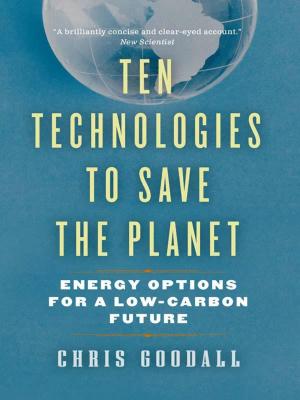The Burning Question
We can't burn half the world's oil, coal and gas. So how do we quit?
Nonfiction, Science & Nature, Nature, Environment, Natural Resources, Science, Biological Sciences, Environmental Science, Environmental Conservation & Protection| Author: | Mike Berners-Lee, Duncan Clark | ISBN: | 9781771640084 |
| Publisher: | GREYSTONE BOOKS LTD | Publication: | September 13, 2013 |
| Imprint: | Greystone Books | Language: | English |
| Author: | Mike Berners-Lee, Duncan Clark |
| ISBN: | 9781771640084 |
| Publisher: | GREYSTONE BOOKS LTD |
| Publication: | September 13, 2013 |
| Imprint: | Greystone Books |
| Language: | English |
Take one complex scientific discipline. Add the future of energy, economics, and geopolitics. Season with human nature . . .
The Burning Question reveals climate change to be the most fascinating scientific, political and social puzzle in history. It shows that carbon emissions are still accelerating upwards, following an exponential curve that goes back centuries. One reason is that saving energy is like squeezing a balloon: reductions in one place lead to increases elsewhere. Another reason is that clean energy sources don't in themselves slow the rate of fossil fuel extraction.
Tackling global warming will mean persuading the world to abandon oil, coal and gas reserves worth many trillions of dollars—at least until we have the means to put carbon back in the ground. The burning question is whether that can be done. What mix of politics, psychology, economics and technology might be required? Are the energy companies massively overvalued, and how will carbon-cuts affect the global economy? Will we wake up to the threat in time? And who can do what to make it all happen?
Take one complex scientific discipline. Add the future of energy, economics, and geopolitics. Season with human nature . . .
The Burning Question reveals climate change to be the most fascinating scientific, political and social puzzle in history. It shows that carbon emissions are still accelerating upwards, following an exponential curve that goes back centuries. One reason is that saving energy is like squeezing a balloon: reductions in one place lead to increases elsewhere. Another reason is that clean energy sources don't in themselves slow the rate of fossil fuel extraction.
Tackling global warming will mean persuading the world to abandon oil, coal and gas reserves worth many trillions of dollars—at least until we have the means to put carbon back in the ground. The burning question is whether that can be done. What mix of politics, psychology, economics and technology might be required? Are the energy companies massively overvalued, and how will carbon-cuts affect the global economy? Will we wake up to the threat in time? And who can do what to make it all happen?















